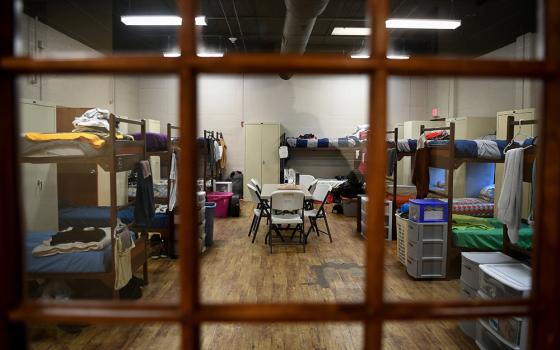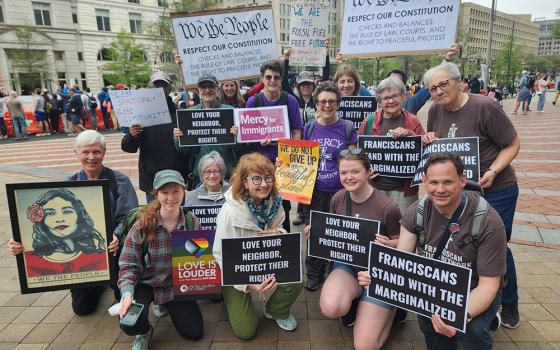German Jesuit Fr. Klaus Mertes, who first broke the story of the long-standing, systematic priestly sex abuse scandal in Germany in 2010, said in an interview with the German Internet portal katholisch.de, that the Vatican is not doing nearly enough to clear up sex abuse cases.
Mertes said he agrees with Australian Bishop Geoffrey Robinson, who testified to that fact in front of the Australian Royal Commission Aug. 23. Mertes also warned that this may cause credibility problems for the bishops at the coming Synod of Bishops on the family in October.
Robinson was not trying to reopen the subject of abuse and the way the Vatican handled it in his critical testimony before the royal commission, Mertes said. Robinson was deeply worried that the questions the church faced concerning priestly sexual abuse of children when it encountered the victims would once again meet with silence in Rome. This did not mean depreciating praiseworthy efforts like the foundation of the Child Protection Commission and the many different efforts being made to prevent abuse, Mertes said, but added, “They are simply not enough. The entire church is at stake.”
Related: Australian bishop testifies on prevalence of child sex abuse in the church
Mertes said he fully agreed with Robinson that Pope Francis had not yet shown the type of leadership needed to deal with child sexual abuse in the church and demanded that the Vatican make greater efforts to clear up sexual abuse cases by members of the clergy. Those responsible in the Vatican at the moment were “not credible” and their desire for clarification “doubtful,” he said.
“The credibility of Cardinal [George] Pell, [Cardinal Angelo] Sodano and others is in any case permanently shattered. And the intention to clear up sexual abuse cases on the part of the staff at the Congregation for the Doctrine of the Faith, which is responsible, are, for good reasons, highly doubtful. I will gladly give names on request,” Mertes said.
Mertes said the CDF investigations lacked transparency.
“Who in Rome is actually speaking with the victims? Who in the CDF is handling the victims’ reports? How credible are the people responsible for the investigations and for clarification? Will Rome ever publish all the investigation and clarification reports, some of which have already been stowed away in drawers? Many victims and with them many of the faithful are waiting to hear. Clarification is the first and most fundamental act of recognition without which there can be neither healing nor reconciliation,” he said.
Priestly sexual abuse, especially that which had “only ostensibly been dealt with” was still a “disease which continues to burrow underground in the entire church,” Mertes emphasized. “Whatever the bishops at the coming Synod say on the family, sexuality, marriage, gender etc., their credibility is so deeply shattered that they will not be listened to or taken seriously as long as they are not conscious of quite how shattered that credibility is,” he said. Robinson knew the serious grounds why this was so, one only had to ask him, he added.
“I have pinned my hopes on Bishop Robinson in recent years who is a role model for me and a great comfort,” Mertes said. “Hardly any other member of the hierarchy has held such intensive talks with victims of priestly sexual abuse in the church and hardly anyone has paid so high a price for speaking out so openly and attempting to clear up abuse.”
[Christa Pongratz-Lippitt is the Austrian correspondent for the London-based weekly Catholic magazine The Tablet.]



